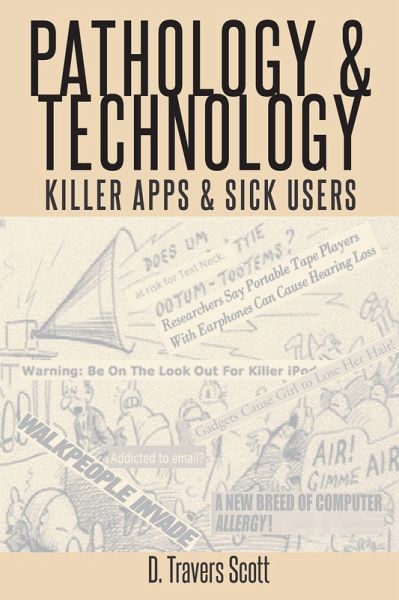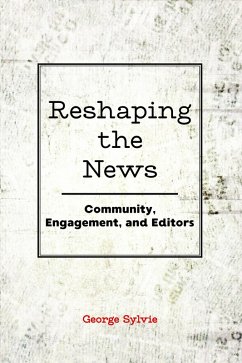
Pathology and Technology (eBook, PDF)
Killer Apps and Sick Users
Versandkostenfrei!
Sofort per Download lieferbar
Statt: 70,95 €**
53,95 €
inkl. MwSt.
**Preis der gedruckten Ausgabe (Broschiertes Buch)
Alle Infos zum eBook verschenkenWeitere Ausgaben:

PAYBACK Punkte
27 °P sammeln!
Pathology & Technology is the first comprehensive look at "technopathologies." Since the days of the telegraph, electric communication technologies have been associated with causing or worsening mental and physical illnesses. Today, news reports warn of Pokémon Go deaths and women made vulnerable to sexual assault from wearing headphones. Drawing on an archive of hundreds of cases found across news, entertainment, and other sources over 150 years, this book investigates the intersection of technology and disease through original cultural historiography, focus groups, and discourse analysis, d...
Pathology & Technology is the first comprehensive look at "technopathologies." Since the days of the telegraph, electric communication technologies have been associated with causing or worsening mental and physical illnesses. Today, news reports warn of Pokémon Go deaths and women made vulnerable to sexual assault from wearing headphones. Drawing on an archive of hundreds of cases found across news, entertainment, and other sources over 150 years, this book investigates the intersection of technology and disease through original cultural historiography, focus groups, and discourse analysis, documenting a previously unexplored phenomenon in communication and media. Technopathologies occur with new and old media, the book argues, and are ultimately about people-not machines. They help define users as normal or abnormal, in ways that often align with existing social stereotypes. Courses on technological history, medical humanities, science and technology studies, and medical history will find much here to debate, in a style written to appeal to scholarly as well as popular readers.
Dieser Download kann aus rechtlichen Gründen nur mit Rechnungsadresse in A, D ausgeliefert werden.













